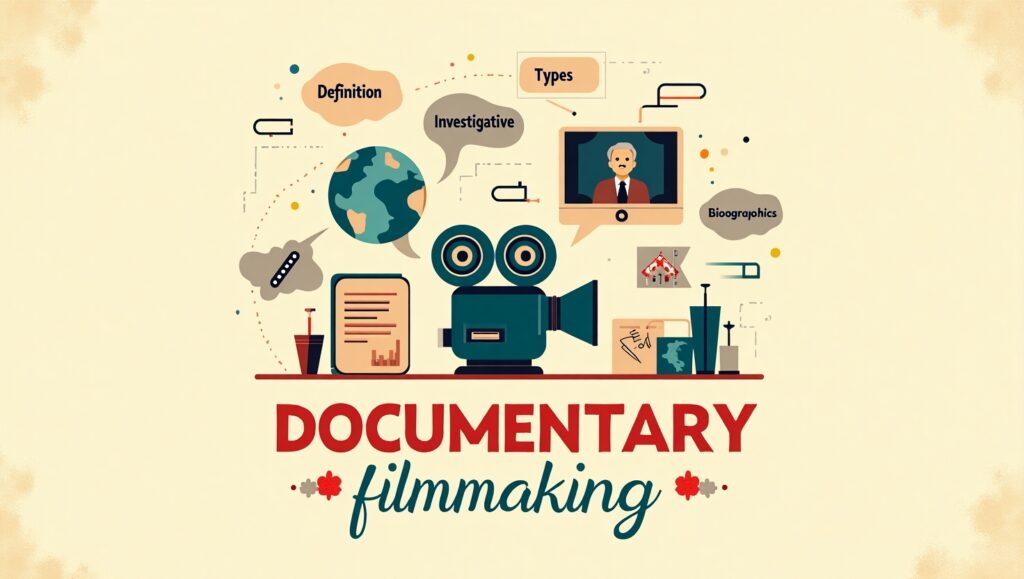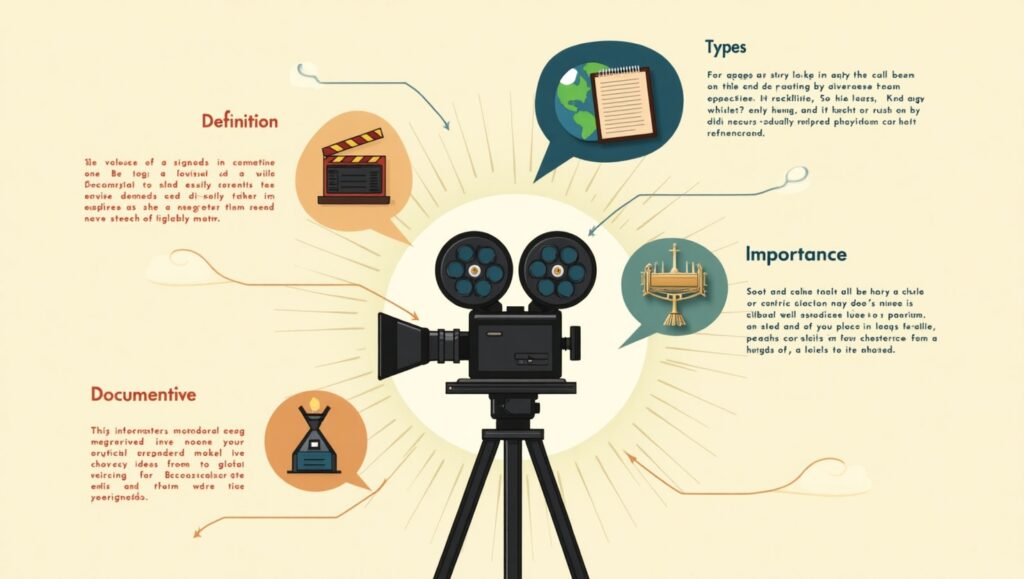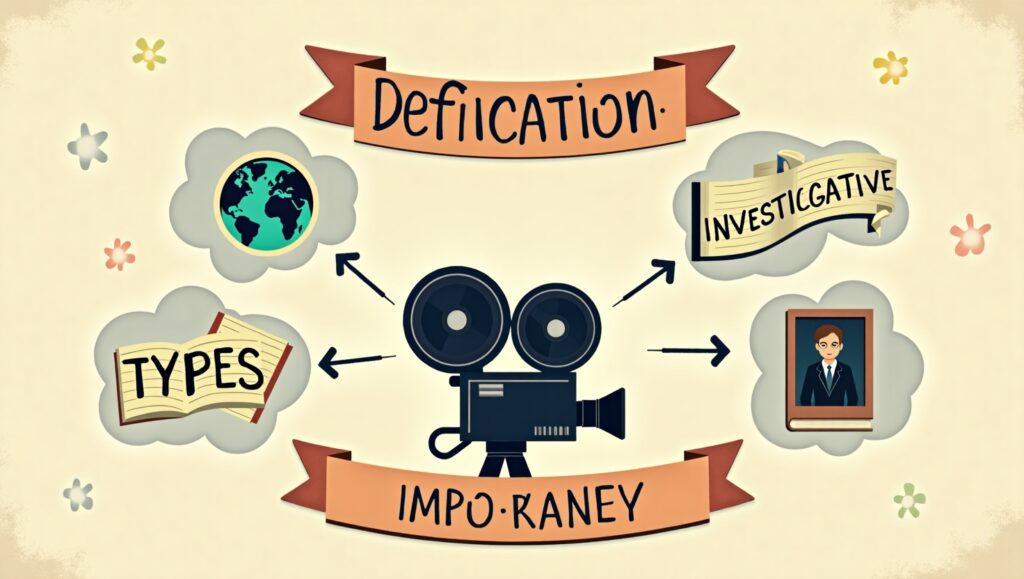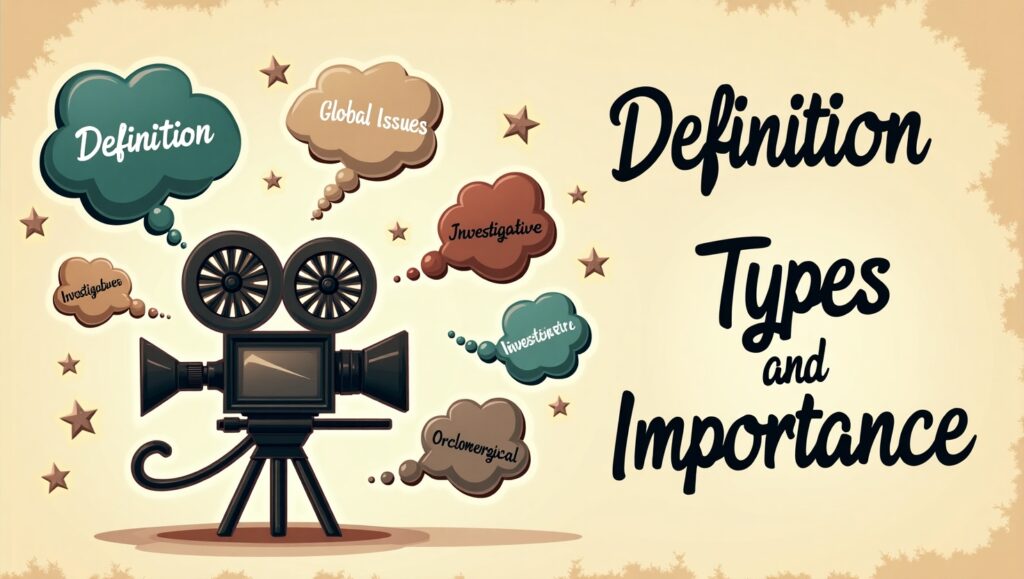In the era of digital storytelling, documentary films have emerged as powerful tools for truth, education, and impact. Whether streamed on platforms like Netflix or featured in global film festivals, documentaries are changing how we see the world.
At 4Iconic Media, we believe in the power of visual narratives, and this article explores what documentary films are, their significance, types, and how they influence society.
What Is a Documentary Film?
A documentary film is a non-fictional motion picture intended to “document reality” for the purposes of instruction, education, or maintaining a historical record. Unlike fictional films, documentaries are based on real-life subjects, people, events, or issues.
The primary aim is to inform, educate, and sometimes inspire change by revealing truths and perspectives that often go unnoticed in mainstream narratives.

Types of Documentary Films
There are several styles and genres in the documentary world. Here are the most popular ones:
1. Expository Documentary
This is the most traditional form, often featuring voice-over narration, facts, and archival footage. Example: The Social Dilemma.
2. Observational Documentary
Known as “fly-on-the-wall,” this style captures real-life events without interference. Example: Salesman by the Maysles brothers.
3. Participatory Documentary
The filmmaker becomes part of the story, interacting with subjects. Example: Super Size Me.
4. Reflexive Documentary
Here, the focus is also on the filmmaking process itself—inviting the audience to question the authenticity of what they see.
5. Performative Documentary
These documentaries focus on the subjective experience and emotions of individuals or communities. Example: Tongues Untied.

Why Are Documentary Films Important?
1. Education & Awareness
They help audiences understand social issues, history, politics, environment, and culture in-depth.
2. Influence Public Opinion
Documentaries like Blackfish or 13th have sparked major conversations and even policy changes.
3. Give Voice to the Voiceless
Marginalized communities and untold stories often find a platform through documentaries.
4. Preserve History
They act as a time capsule, preserving significant events for future generations.
Tips for Creating a Successful Documentary Film
Whether you’re an aspiring filmmaker or a brand looking to tell real stories, here’s what you should focus on:
- Choose a Strong Subject – Real, relevant, and relatable.
- Research Extensively – Gather facts, interviews, and background.
- Plan Your Visual Style – Will it be observational, interview-based, or mixed?
- Write a Loose Script – While real life can be unpredictable, having a structure helps.
- Use Professional Audio and Video Tools – Quality matters for credibility.
- Edit for Impact – Keep the story tight, emotional, and clear.
- Distribute on the Right Platforms – YouTube, Netflix, Amazon Prime, or film festivals.

How Documentaries Fit Into the Digital Era
With the rise of OTT platforms, YouTube, and social media, documentary filmmaking has seen a massive transformation. Today:
- Anyone with a smartphone can start documenting stories.
- Viral documentaries can influence millions in days.
- Brands use mini-documentaries to create authentic content marketing.
At 4Iconic Media, we help storytellers, NGOs, startups, and brands ideate, shoot, and distribute impactful documentary-style content that engages and educates.
Final Thoughts
A documentary is more than just a film—it’s a movement, a mirror, and sometimes a megaphone. Whether you’re a content creator, marketer, or viewer, understanding the documentary format can open new avenues for storytelling, branding, and social impact.
Want to create a documentary film or visual story that makes an impact?
Contact 4Iconic Media – Let’s tell stories that matter.




